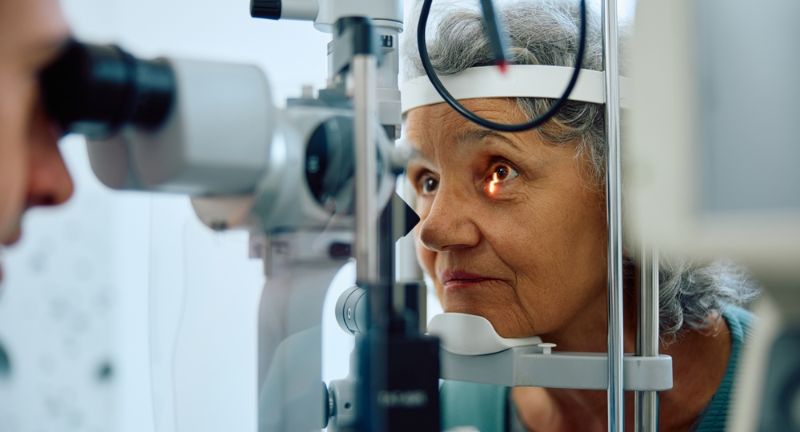Retirement is a time to enjoy the fruits of your labor, but health problems can quickly overshadow these golden years. Many health issues stem from preventable mistakes, ranging from poor lifestyle choices to a lack of proactive care. By identifying and addressing these mistakes early, you can preserve your well-being and fully enjoy retirement. Here are 22 common health mistakes that could jeopardize your retirement—and how to avoid them.
Skipping Regular Checkups

Shutterstock
Regular medical checkups are essential for detecting and addressing health issues early. Many retirees neglect routine visits, leading to undiagnosed conditions that worsen over time. Scheduling annual exams and following through with recommended screenings ensures better long-term health. Staying proactive about your health makes a big difference in retirement.
Ignoring Physical Activity

Shutterstock
A sedentary lifestyle can lead to weight gain, muscle loss, and chronic illnesses. Many retirees fall into the trap of inactivity after leaving the workforce. Incorporating regular exercise, such as walking, swimming, or yoga, helps maintain physical and mental health. Staying active ensures a more vibrant and independent retirement.
Overlooking Mental Health

Shutterstock
Mental health is just as important as physical health, yet many retirees overlook it. Social isolation, lack of purpose, and stress can lead to depression and anxiety. Engaging in hobbies, volunteering, and staying connected with loved ones helps support mental well-being. Prioritizing mental health ensures a more fulfilling retirement.
Neglecting Hydration

Shutterstock
Dehydration becomes more common with age, leading to fatigue, confusion, and other health issues. Retirees often forget to drink enough water, especially in cooler weather when thirst is less noticeable. Keeping a water bottle handy and setting reminders can help ensure proper hydration. Staying hydrated is essential for overall health.
Poor Nutrition Choices

Shutterstock
Many retirees rely on convenience foods that are high in sodium, sugar, and unhealthy fats. Poor nutrition increases the risk of heart disease, diabetes, and other chronic conditions. Planning balanced meals with whole grains, lean proteins, fruits, and vegetables supports long-term health. Making mindful dietary choices boosts energy and vitality.
Failing to Manage Chronic Conditions

Shutterstock
Ignoring or poorly managing chronic conditions like hypertension, diabetes, or arthritis can lead to serious complications. Many retirees skip medications or fail to follow treatment plans. Regular checkups, medication adherence, and lifestyle adjustments are key to controlling chronic illnesses. Staying on top of your health prevents future complications.
Ignoring Dental Health

Shutterstock
Dental health often takes a backseat in retirement, but neglecting it can lead to gum disease, tooth loss, and other problems. Poor oral health is also linked to heart disease and other systemic conditions. Regular dental checkups and good hygiene practices are essential for maintaining overall health. A healthy smile contributes to a better quality of life.
Underestimating the Importance of Sleep

Shutterstock
Sleep patterns often change with age, but consistent poor sleep can harm physical and mental health. Many retirees underestimate the impact of sleep on overall well-being. Establishing a regular bedtime routine and addressing sleep disorders ensures better rest. Quality sleep boosts energy, memory, and immune function.
Skipping Vaccinations

Shutterstock
Vaccinations protect against preventable diseases, but many retirees neglect to stay up to date. Influenza, pneumonia, and shingles vaccines are particularly important for older adults. Consulting with your doctor about recommended immunizations keeps you safe and healthy. Staying protected reduces the risk of serious illness in retirement.
Failing to Stay Flexible

Shutterstock
Flexibility and balance decrease with age, increasing the risk of falls and injuries. Many retirees overlook stretching or balance exercises, focusing solely on strength or cardio. Activities like yoga or tai chi improve flexibility and reduce fall risks. Incorporating these into your routine enhances mobility and independence.
Overindulging in Alcohol

Shutterstock
Excessive alcohol consumption is a common issue among retirees, often leading to health complications such as liver damage and heart problems. While occasional drinks are fine, moderation is key to avoiding long-term risks. Limiting alcohol intake and staying hydrated can help maintain better overall health. Balancing social enjoyment with responsible choices ensures a healthier retirement.
Skipping Strength Training

Shutterstock
Strength training is essential for maintaining muscle mass and bone density, which naturally decline with age. Many retirees focus only on cardio exercises, neglecting resistance training. Incorporating weights or bodyweight exercises a few times a week improves physical strength and reduces the risk of falls. Strong muscles and bones support a more active and independent lifestyle.
Ignoring Eye Health

Shutterstock
Vision changes are common with age, but many retirees delay eye exams or ignore symptoms like blurriness. Conditions like cataracts, glaucoma, and macular degeneration can worsen without early detection. Regular visits to an eye doctor ensure timely treatment and prevention of vision loss. Clear eyesight enhances quality of life and independence.
Underestimating Hearing Loss

Shutterstock
Hearing loss often goes unnoticed or untreated, leading to social isolation and cognitive decline. Many retirees avoid addressing hearing issues due to stigma or cost concerns. Using hearing aids or seeking treatment early improves communication and mental health. Maintaining hearing health ensures better engagement in daily activities and relationships.
Overlooking Skin Health

Shutterstock
Skin becomes more fragile with age, increasing the risk of damage from sun exposure or injuries. Many retirees neglect sunscreen or fail to monitor changes in moles or spots. Regular dermatological checkups and daily sun protection help prevent skin cancer and maintain healthy skin. Caring for your skin enhances overall well-being.
Relying Too Much on Painkillers

Shutterstock
Chronic pain is common in retirement, but over-reliance on painkillers can lead to dependency or side effects. Exploring alternative treatments like physical therapy, acupuncture, or lifestyle changes can reduce the need for medication. Discussing pain management options with a doctor ensures safe and effective care. A balanced approach helps manage pain without compromising health.
Skipping Balance Exercises

Shutterstock
Falls are a leading cause of injury in older adults, yet many retirees overlook balance training. Exercises like tai chi, yoga, or standing on one leg improve coordination and stability. Incorporating balance exercises into your routine reduces the risk of falls and related injuries. Better balance ensures a safer and more active lifestyle.
Not Staying Socially Active

Shutterstock
Social connections are vital for mental and emotional well-being, but many retirees become isolated. Joining clubs, participating in community events, or maintaining friendships can combat loneliness. Staying socially engaged promotes a sense of purpose and reduces the risk of depression. Building relationships enhances the joy and fulfillment of retirement.
Failing to Address Sleep Apnea

Shutterstock
Sleep apnea often goes undiagnosed, causing fatigue, heart problems, and other health issues. Many retirees dismiss symptoms like loud snoring or daytime drowsiness. Seeking a diagnosis and using treatments like CPAP machines improves sleep quality and overall health. Addressing sleep apnea ensures better rest and energy for daily activities.
Ignoring Bone Health

Shutterstock
Bone density declines with age, increasing the risk of fractures and osteoporosis. Many retirees fail to prioritize bone health through diet or exercise. Consuming calcium-rich foods and engaging in weight-bearing activities strengthens bones. Regular bone density screenings help detect and address issues early.
Skipping Preventive Screenings

Shutterstock
Preventive screenings for conditions like colon cancer, heart disease, or diabetes are often overlooked in retirement. Early detection significantly improves treatment outcomes and quality of life. Staying up to date on recommended screenings ensures better long-term health. Regular checkups help catch issues before they become serious.
Relying Solely on Over-the-Counter Supplements

Shutterstock
Supplements can fill nutritional gaps, but relying on them instead of a balanced diet can be harmful. Many retirees take unregulated supplements without consulting a doctor, risking interactions or overdoses. Focusing on whole foods and using supplements only when necessary ensures better health outcomes. Professional advice helps optimize your nutritional plan.
Conclusion

Shutterstock
Retirement should be a time to enjoy life, but poor health choices can quickly derail those plans. By avoiding these common mistakes, you can protect your physical and mental well-being and make the most of your golden years. Staying proactive, maintaining healthy habits, and seeking regular care ensures a fulfilling and vibrant retirement. Your health is your greatest asset—invest in it wisely.























































